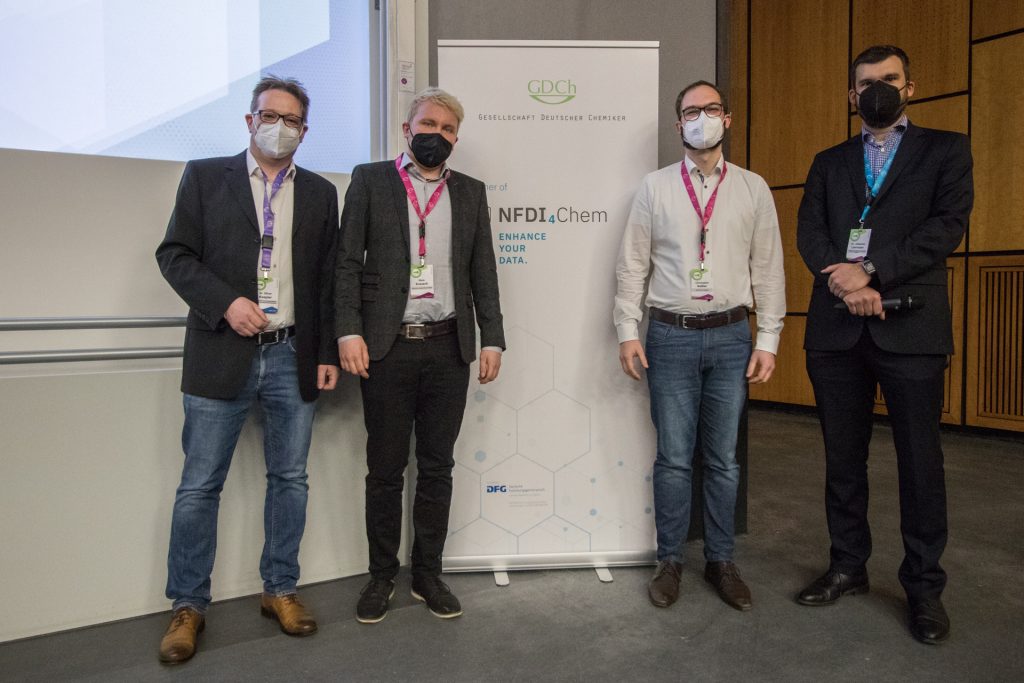We are currently seeing (and supporting !) the cultural change towards modern, digital research data management (RDM) in chemistry. An important set of criteria for good RDM are the FAIR guiding principles, aiming that research data should be Findable, Accessible, Interoperable, and Reusable.
The FAIR4Chem Award 2022 celebrates published chemistry research datasets that best meet the FAIR principles and thus make a significant contribution to increasing transparency in research and the reuse of scientific knowledge.
The contest was open for submission from 15.10. to 15.12.2021. The winners were selected in a two-stage process, using the criteria of the FAIR assessment tool developed by the Australian Research Data Commons infrastructure followed by a joint jury evaluation of the top-scoring submissions.
The FAIR4Chem Award 2022 honors the datasets of:
Niels Krausch and Robert T. Giessmann: Collection of UV/Vis spectra acquired while monitoring reaction progress of thymidine phosphorolysis with varying reactant concentrations (DOI: 10.5281/zenodo.3243352)
and
Christopher Kessler et al.: Supplementary material for ‘Adsorption of Light Gases in Covalent Organic Frameworks: Comparison of Classical Density Functional Theory and Grand Canonical Monte Carlo Simulations’ (DOI: 10.18419/darus-1775)
Congratulations to the winners! The award included a prize money of 500€, kindly provided by the Fonds der Chemischen Industrie (FCI) and was presented during our NFDI4Chem session at the JCF Frühjahrssymposium on March 25th, 2022, in Hannover.

And remember: after the contest is before the contest! We will keep you posted on next years’ FAIR4Chem contest.


